Krill-derived oil and meal have bioactive ingredients like omega-3s, astaxanthin
With continually rising aquafeed ingredient prices, the search is on for new, alternative ingredients that can be cost-effectively incorporated into commercial diets to replace more traditional ingredients like fishmeal and fish oil.
Qrill, a commercial product derived from Antarctic krill (Euphausia superba) – small, shrimp-like crustaceans that constitute one of the world’s most abundant sources of marine nutrients – has been reported to act as a feeding effector and growth promoter in shrimp diets. However, as a relatively new ingredient, little is known about its potential to replace key protein and lipid sources in shrimp diets.
A study was recently performed by scientists at the Marine Biology Laboratory (LABOMAR) at the Federal University of Ceará in Fortaleza, Brazil, to evaluate the growth and economic performance of juvenile Pacific white shrimp (Litopenaeus vannamei) when traditional ingredients like fishmeal, fish oil, soy lecithin and cholesterol were partially or fully replaced by the krill meal in their diets.
Krill-derived ingredients
Krill-derived oil and meal have a high content of bioactive ingredients like omega-3 bound phospholipids and astaxanthin, which have documented positive effects on both humans and animals.
Omega-3 fatty acids are known to contribute to cell membrane functioning through elasticity and permeability, and thus the transport of key components into and out of cells. Phospholipids are a type of fat that plays a key role in the absorption and metabolism of nutrients. Phospholipids are also important building blocks for all cells in the body. Because the omega-3 docosahexaenoic acid (DHA) is of particular importance in the first few months after hatching, DHA bound to phospholipids seems to increase survival rates and decrease malformation in fish and shrimp larvae.
Study setup
The study was conducted in 25 indoor and 25 outdoor tanks with five replicates for each control and treatment feed. Diets tested included a basal diet designed to fully meet L. vannamei nutritional requirements. From the basal diet, three formulas were developed to progressively replace fishmeal, fish oil, soy lecitin and cholesterol with krill meal.
Diets N1, N2 and N3 contained krill meal at 11, 5 and 1 percent, respectively, with reduced levels of fishmeal (0, 6.25 and 12.50 percent, respectively), fish oil (0.80, 2.00 and 1.58 percent), soy lecitin (0, 0 and 1.55 percent) and cholesterol (0, 0.08 and 0.15 percent). As these ingredients were replaced by krill meal, formula costs in the N1, N2 and N3 reduced 18.0, 15.9 and 7.5 percent, respectively, compared to the basal diet.
Results
After 72 days, shrimp reared under both systems showed no significant (P > 0.05) differences in performance among treatments. Economic analysis indicated that gross profit margin was mainly driven by formula costs, so greater profits were obtained with savings in formula costs. In this study, the formulas containing krill meal were more cost-competitive than the basal diet (Figs. 1 and 2).

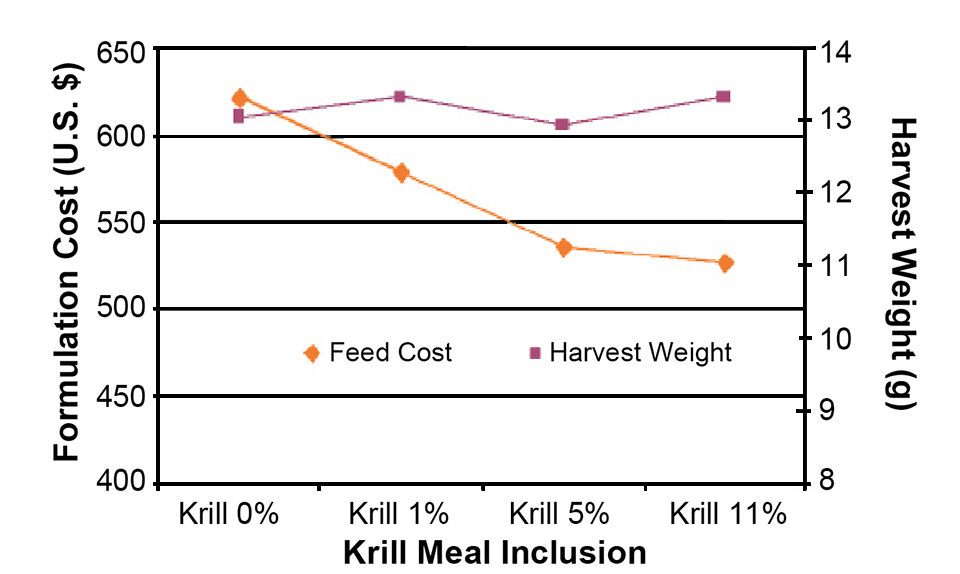
(Editor’s Note: This article was originally published in the July/August 2008 print edition of the Global Aquaculture Advocate.)
Now that you've reached the end of the article ...
… please consider supporting GSA’s mission to advance responsible seafood practices through education, advocacy and third-party assurances. The Advocate aims to document the evolution of responsible seafood practices and share the expansive knowledge of our vast network of contributors.
By becoming a Global Seafood Alliance member, you’re ensuring that all of the pre-competitive work we do through member benefits, resources and events can continue. Individual membership costs just $50 a year.
Not a GSA member? Join us.
Authors
-
Maja Baevre-Jensen
Aker BioMarine ASA
Fjordallèen 16
P.O. Box 1423 Vika – 0115 Oslo, Norway[109,111,99,46,101,110,105,114,97,109,111,105,98,114,101,107,97,64,110,101,115,110,101,106,45,101,114,118,101,97,98,46,97,106,97,109]
-
Dr. Alberto J.P. Nunes
LABOMAR/LRNCM
Av. da Abolição, 3207, Meireles
Fortaleza, Ceará, 60.165-081, Brazil
Tagged With
Related Posts
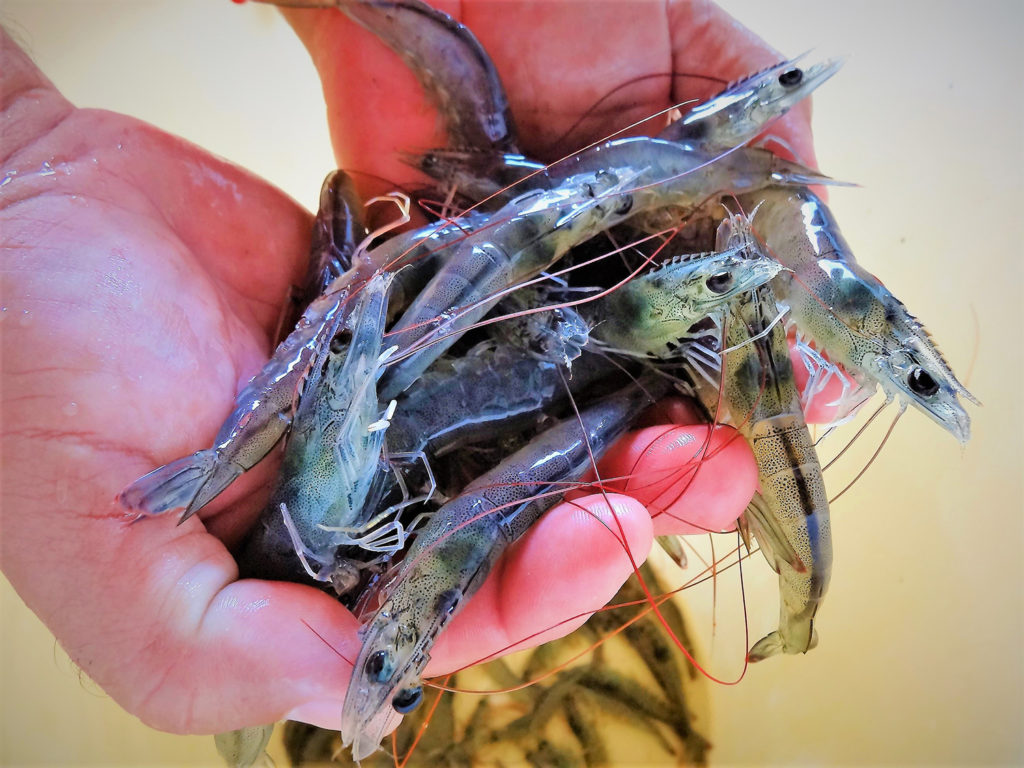
Aquafeeds
Krill meal performs well in shrimp feed experiments
A study of experimental diets for juvenile shrimp showed a halving of fishmeal usage. Limited inclusion of krill meal offset other expensive ingredients.
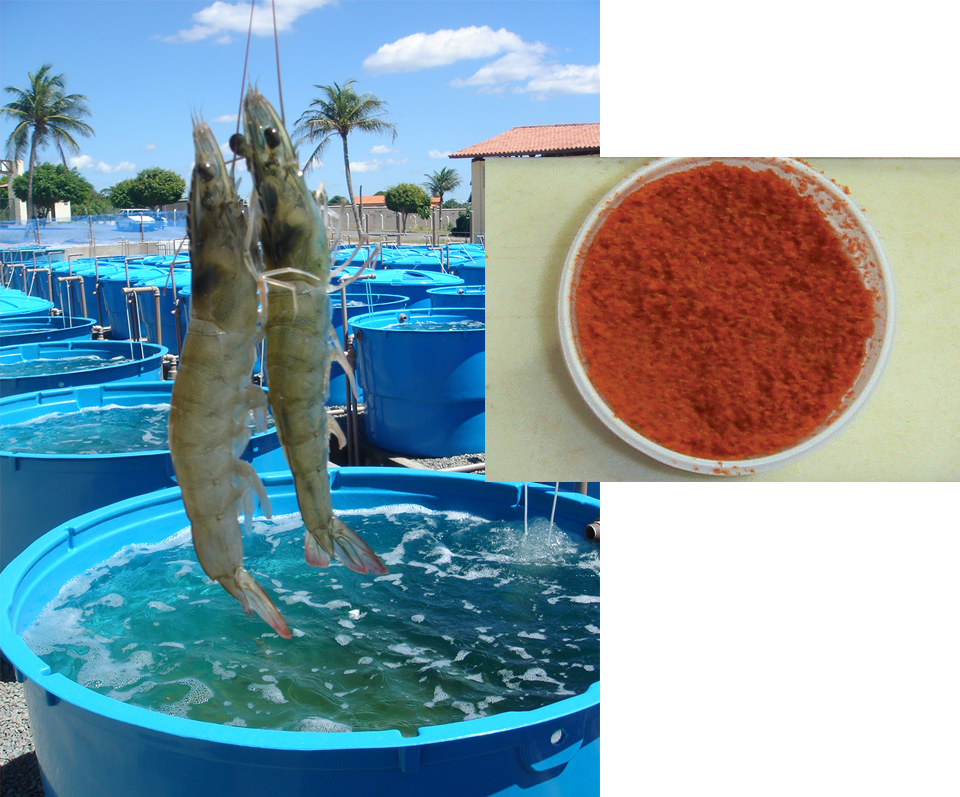
Health & Welfare
Krill meal use reduces other costly ingredients in shrimp study diets
Due to its high protein and highly unsaturated fatty acids content, krill meal can be an effective ingredient in aquafeed.
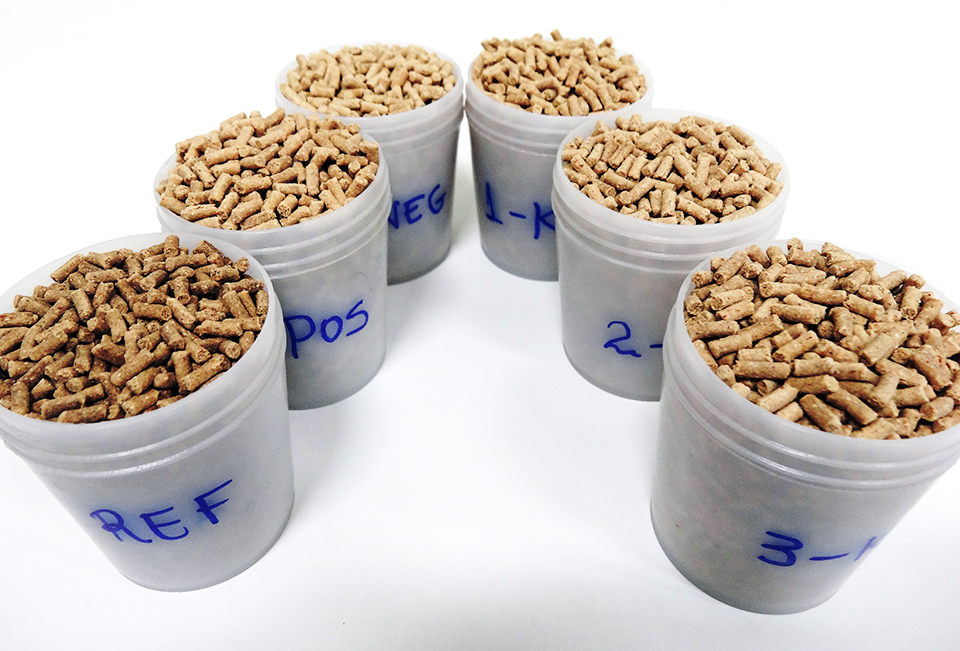
Aquafeeds
Low inclusions of krill meal replace cholesterol in diets for juvenile shrimp
A deficiency of cholesterol in shrimp diets can result in slower growth and higher mortality rates. A study by the authors investigated krill meal as a partial replacement for a cholesterol supplement in diets for juvenile Litopenaeus vannamei shrimp.
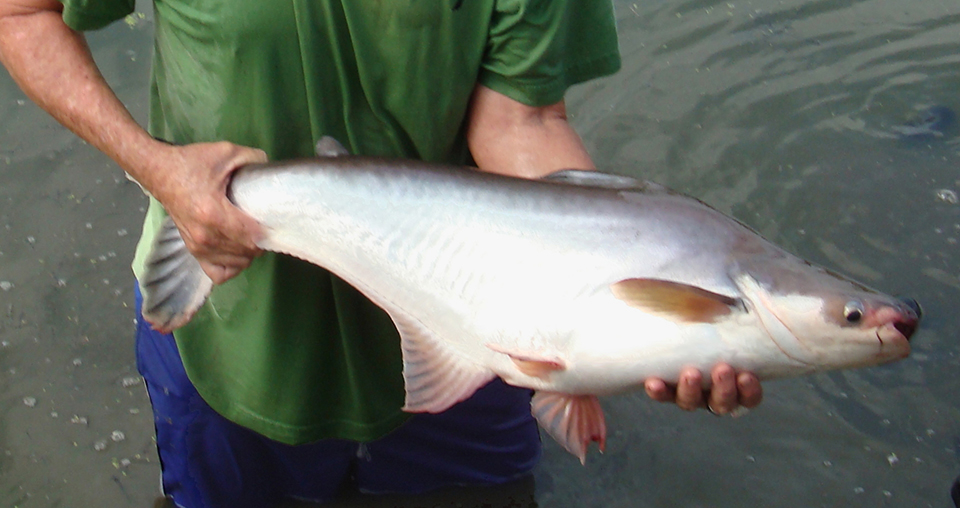
Health & Welfare
Advances in fish hatchery management
Advances in fish hatchery management – particularly in the areas of brood management and induced spawning – have helped establish aquaculture for multiple species.


